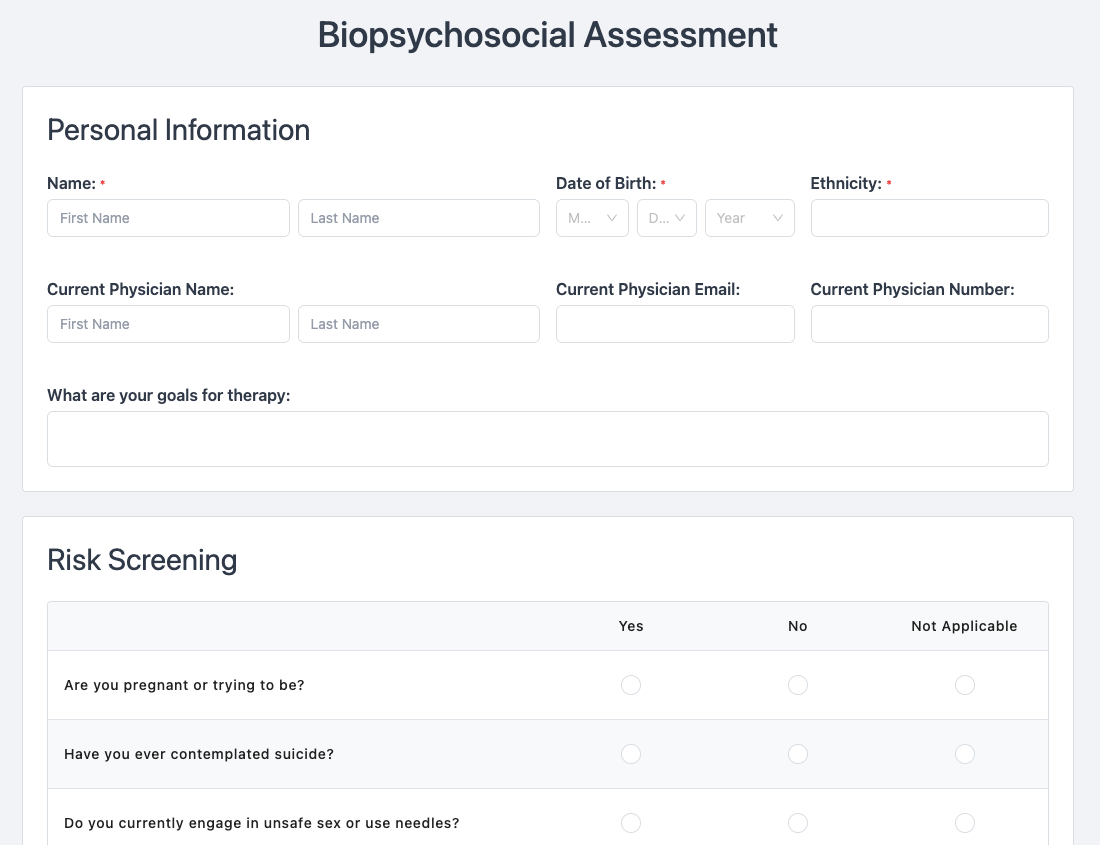

A biopsychosocial assessment form is a comprehensive evaluation tool that examines biological, psychological, and social factors affecting a patient's mental health. This holistic approach helps clinicians understand the complete picture of patient needs and develop effective treatment plans.
Complete Patient Understanding: Gather essential information across all life domains to identify factors contributing to patient problems and strengths that support recovery.
Insurance and Documentation Requirements: Provide thorough documentation required for insurance authorization, claims processing, and demonstrating medical necessity for treatment.
Treatment Planning: Develop evidence-based treatment plans that address identified issues while leveraging patient strengths and resources.
Risk Assessment and Safety: Systematically evaluate suicide risk, safety concerns, and other factors requiring immediate clinical attention.
Biological Factors
Psychological Factors
Social Environment
Patient Demographics: Complete identifying information, emergency contacts, and insurance details.
Presenting Problem: Current symptoms, when they started, and what prompted seeking treatment.
Mental Status Exam: Appearance, mood, thought process, and cognitive functioning assessment.
Risk Assessment: Suicide risk, violence potential, and immediate safety concerns.
Functional Assessment: Work capacity, relationships, and daily living skills evaluation.
Treatment Goals: Preliminary treatment objectives based on assessment findings.